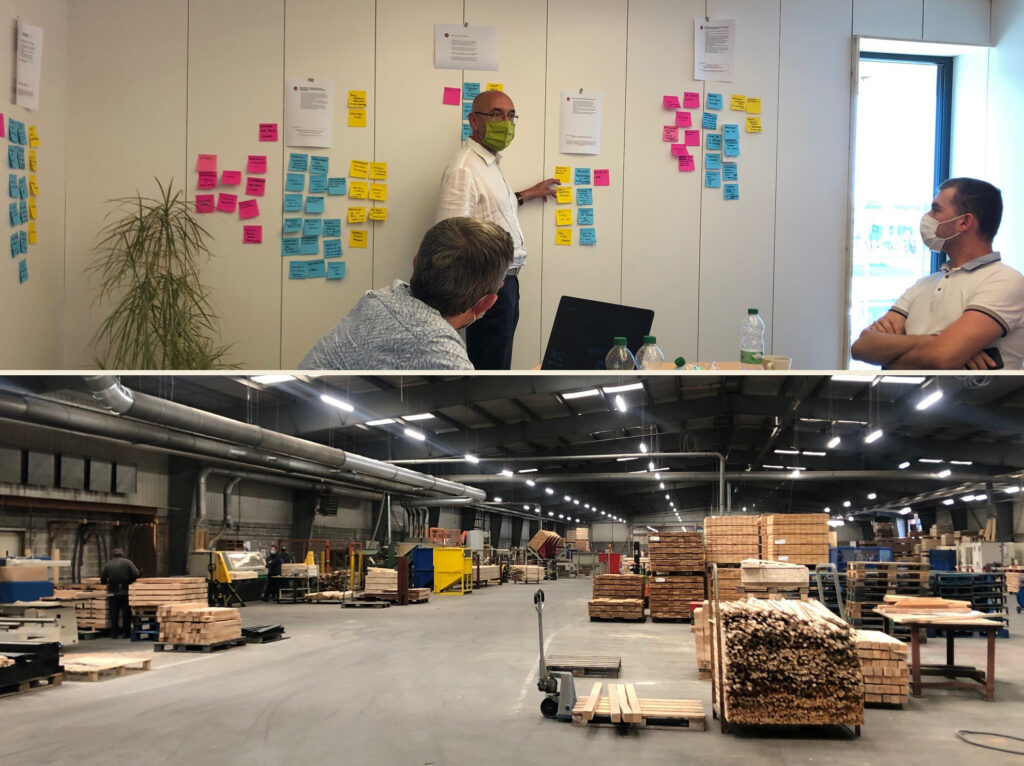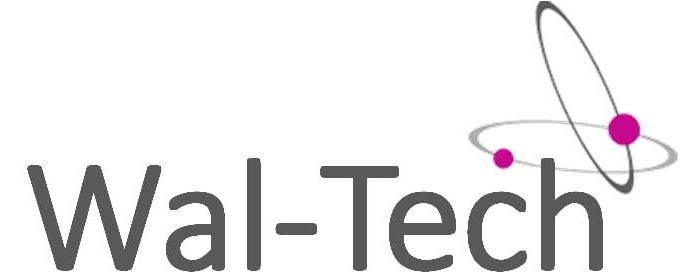Eco-production starts at the product design stage
Company: L’Atelier de l’Avenir, a subsidiary of Ateliers du Monceau, is positioned on the market as a manufacturer of an industrialised timber frame construction system. The company is committed to a global sustainable development approach. As a cooperative company with a social purpose (s.c.r.l.f.s.), it integrates the social aspects of sustainable development through its objective of social integration: it creates employment for people with disabilities, mainly deaf or hearing impaired.
In order to save resources and energy, it reuses the wood waste from its products to heat its entire site and produces a large part of its electricity thanks to the photovoltaic panels that cover its buildings. Their offices meet high energy standards.
Issue: The question of eco-production is an important issue for the company, for reasons of environmental commitment, savings and coherence with its values, as well as for strategic reasons and competitiveness in the market. Therefore, L’Atelier de l’Avenir would like to train its team further in the culture of eco-design and eco-production by going into the subject in greater depth in order to improve its environmental strategy from the design phase of its products.
CRA action: In the framework of the STEP project (Steps Towards Eco-Production, a project supported by ADN in 2020-2021) WOOD.BE has developed specific eco-design guidelines for the wood and furniture industry that bring together the elements through which companies can define and choose their own strategy to reduce the environmental impact of their production and products. L’Atelier de l’Avenir followed an interactive workshop led by WOOD.BE which allowed it to evaluate its knowledge and actions in terms of eco-design.
The overall aim of the STEP project was to support the transition of companies towards eco-production through the integration of eco-design. Designing products for a more sustainable use of resources and a lower impact on the environment is today a key issue in terms of circularity but also in terms of research and development.
Eco-design guidelines were therefore a necessity for the company and at the same time an opportunity to be seized.
These guidelines cover a multitude of criteria that concern the different stages of a product’s lifecycle and involve all the stakeholders in the value chain.
It was therefore necessary to raise awareness and train those responsible for managing the design phase and the production phase of a product, as well as those responsible for marketing and end-of-life. Finally, the end users have an important impact in the use phase and must be properly informed.
Eco-design is defined as the integration of environmental protection into the design of a product (good or service), with the aim to reduce its environmental impact throughout its lifecycle.
In general, it is advisable to use these guidelines in the following contexts:
– During a self-assessment of products that are already in production;
– During a review to improve the environmental footprint of an existing product or process within the company;
– During the design of a new product or service and the definition of the specifications of a new production;
– In communication, in order to support the different stakeholders and users for the right way of transport, sale, use and end of life of the product;
– In the process of transformation towards eco-production.
The modality of the workshop was a guided brainstorming. Generally, in a brainstorming, the participants of a group bring ideas in a disordered way from a few questions. These ideas are first collected without judgement or censorship, and then sorted according to criteria shared within the group. This makes it possible to visualize all the ideas formulated, to group similar ideas together and finally to make a selection.
In the case of the “STEP” workshop, the 11 eco-design guidelines for the timber construction sector were the common thread of the reflection. Following the presentation of each guideline, the participants expressed their ideas with the help of inspiring examples.
Industrial benefits: On the basis of the stimuli, new knowledge and observations expressed during this workshop, Atelier de l’Avenir was able to clarify its priorities in terms of improving its sustainable development strategy, regaining momentum in its reflection about projects that are feasible in the short and long term. Several points raised during the workshop are now in the company’s program and among the objectives to be achieved.

Wood.be
Research centre for the wood and furniture industry that supports companies in achieving an innovative and sustainable future. WOOD.BE is a one-stop-shop for questions relating to technology, innovation, certification, standardisation, safety, etc.
All. Hof ter Vleest 3, 1070 Anderlecht, Belgique
Last updated: 19 June 2025

